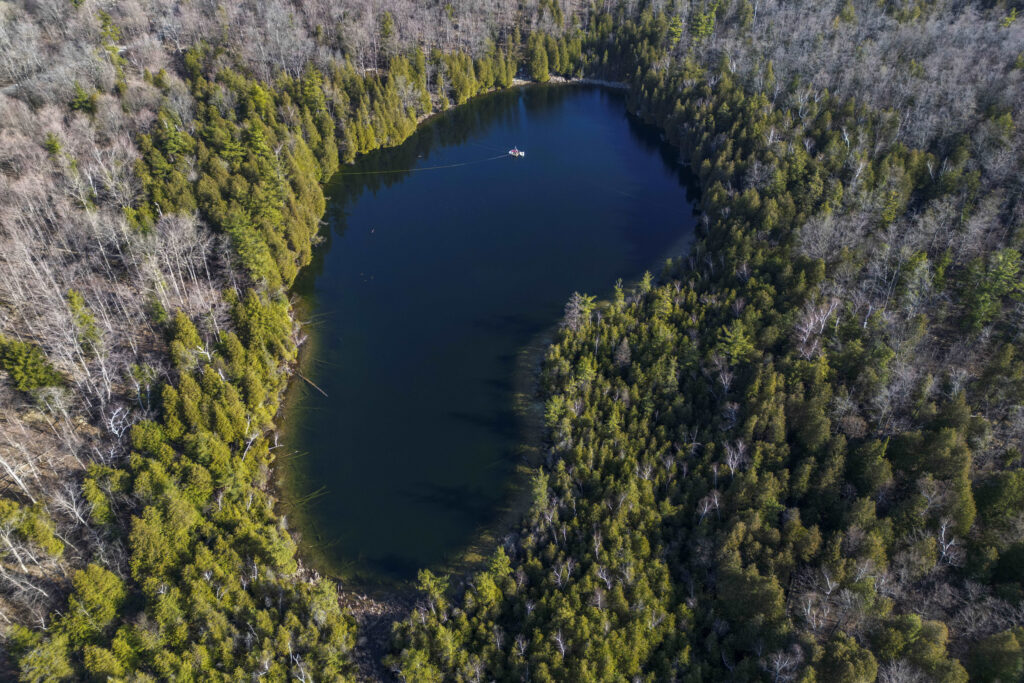As our “CDN by the Sea” tour has shown, the notion of relentless, even accelerating sea level rise due to climate change is highly suspicious since the seas are rising very slowly in a lot of places and falling in a surprising number of others. But as Francis Tucker-Manns wrote earlier this year, there’s reason to think that even if seas are rising, the threat to major cities is vanishingly small because of an underappreciated but well-established aspect of that process that has been going on for thousands of years. We know the seas have been coming up for 12,000 years or so. Which raises the question: Why aren’t most of the famous cities of antiquity submerged? It has to do with that classical Greek letter “Delta”. As in river delta. While the seas are rising, the rivers are building coastlines outwards.
Alarmists may claim to discern, or dare to predict, a rapid rise in sea levels starting soonish. But the historical record is quite clear that the oceans shot up in the initial great melt at the end of the last glaciation and the start of the Holocene, then tapered off, and have been rising very gently since. It’s a complex picture, because of issues like land subsiding or eroding in some places and rising or accumulating in another.
People have long lived near the water for fairly obvious reasons, from thirst to irrigation to ease of travel before railways and modern roads. Of course many cities, from Beijing and Varanasi to Paris or London, are on rivers rather than the seashore, though most of London including the entire historical part is on a part of the Thames with tides. (Hence the famous if usually mangled Canute story.) One issue about oceanfront locations is that the wrong people also find them easy to travel, like Viking raiders. But many great cities, from Madras and Calcutta to New York and Tokyo, are on the sea, though also almost invariably also on rivers. So why aren’t they underwater?
Because of the rivers, says Manns, specifically the silt. Rivers erode land and wash it down toward the ocean where it forms a delta. And “As sea levels rise, rivers lose their energy and build deltas that stay above water. Bangladesh, conservatively, has advanced more than 120 km as sea level has risen 120 metres. The Mississippi Delta has also grown accordingly. All our marine deltas are in the process of advancing out to sea.” Indeed, he says, at the start of the Holocene Baton Rouge, Louisiana was on the Gulf Coast. Today it is 250 km inland.
Even the most unoriginal politician, and here we mean Jagmeet Singh, can be counted on to babble things like “The impact of pollution, global warming and rising sea levels on the ecosystems, infrastructure and on Canadians is undeniable – and coastal communities are paying the price.” Like Victoria BC maybe, near his home riding of Burnaby BC, where the torrid pace of sea level rise means it will have gone up a meter in only 3,830 years. Meanwhile the professoriate asks dustily about “Improving Communications Around Climate Change/ How can scientists better explain the potential hazards of sea-level rise to historic coastal communities?” as if the only real problem were to explain it to those dolts in one-syllable words.
Alas instead we get the scary language about “For coastal urban areas, rising seas could be particularly catastrophic, flooding cities and reshaping the shoreline and way of life. Sea-level rise affects not only infrastructure, but cultural and built heritage as well.” And then two “historic preservation scholars” mumble that “Beyond individual property adaptation, preservation specialists must engage in community-wide dialogues on endangered urban heritage and comprehensive resilience planning.” But it’s hard because people just don’t see the floodwaters pouring in and so for some reason don’t believe they are.
Of course if the oceans were to rise, say, 24 feet in a day we’d be in… the Thames, whose tidal flux actually is that enormous in some places at certain times of year. If they did it day after day, and always just up, it would spell disaster, literally of Biblical proportions. But if it were to happen over a period of several centuries, the impact on great coastal cities would be surprisingly small even if people were too dumb or too poor to build dykes.
It’s also true that bad water management could prevent this natural adaptation from happening, and humans are certainly capable of bad water management. Including in liberal spots like, say, California. But overall those animated graphics of the inundation of our great cities as God once again punishes us for our sins, climatic this time, are just scare stories.



When all is said, you can't get an alarmist to see the whole picture. IF you get the chance to do so, they just look at you and say, "That doesn't mean it's not bad." When an alarmist from California was telling me how bad climate change is and how it starts 'wildfires ', I reminded them that 10 of the biggest wildfires in the last 5 years in CA. were started by arsonist.
As to sea levels,, reminded my boys science teacher that if the north sea ice all turned to water tomorrow, the sea levels would actually drop.. 'The law of displacement ',.. he looked at me for some seconds and then said, " I forgot about that. We've been lying to the kids for years now. "
About sea level rise - one fact that I have never seen mentioned (though the above article touches on it) it how much of any measured sea level rise is due to land mass erosion "filling up" the bathub - so to speak? As mentioned above all rivers carry vast amounts of trees, rock, soil and sand down from higher land masses - and dump it into the oceans - where it can do nothing much else than increase the level of the seas. We also know that some of the highest tsunami waves have been created by huge landslides breaking off of mountains and plunging into the sea. But in effect they too are simply helping to "fill up the tub".
We know that for many lakes their death/disappearance over time it simply because they get filled up - with biomass such as trees, as well as soil and rocks washed into them. So why would the world oceans be any different? Not sure what average annual erosion volumes are plunging into the oceans - but over time there has to be some significant impact.